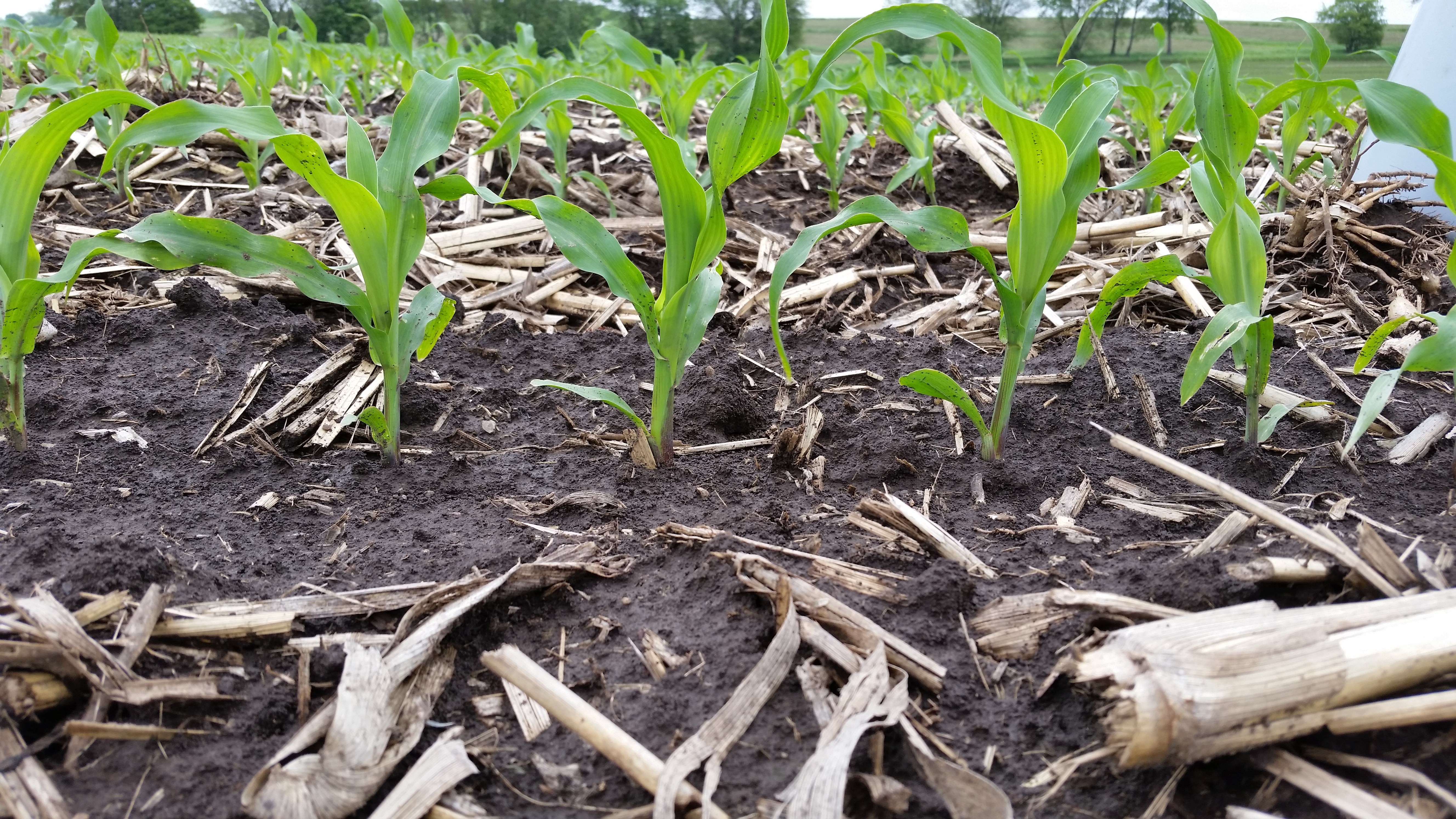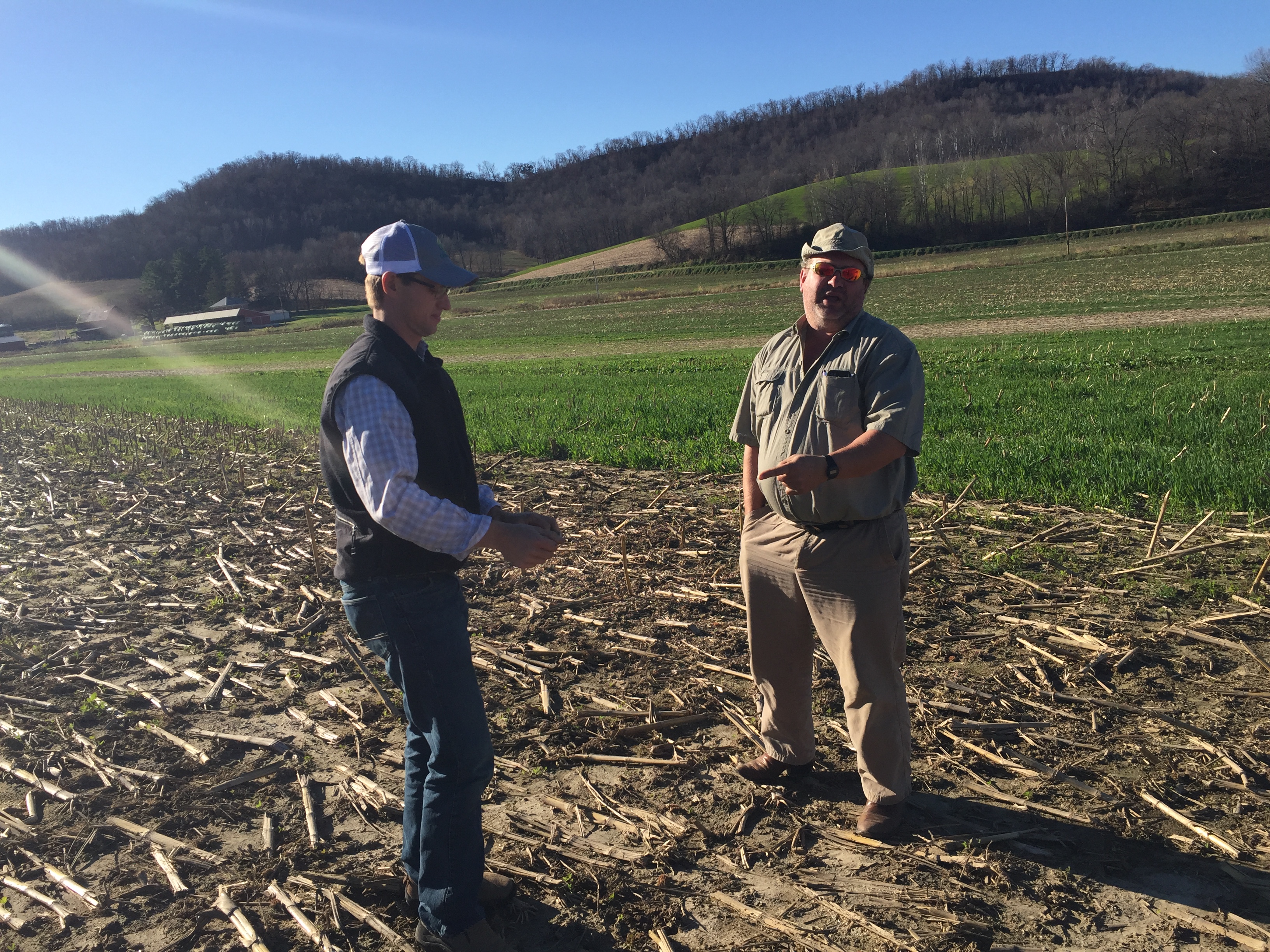Article compiled by Abby Augarten from experiences provided by participants in the NUE Project
Since 2015, the Discovery Farms Nitrogen Use Efficiency (NUE) Project has conducted assessments on WI farms to establish benchmarks for WI specific farming systems and assist farmers in their N management. Five regions have been included in these assessments to determine how NUE can assess a field’s efficiency relative to nearby farms and how to improve NUE using different nitrogen management techniques.
We asked a few NUE farmer participants to share their experience and lessons learned from this project.
Don Niles, a dairy farmer in Kewaunee County, has been involved with the NUE Project since 2016. He serves as the president of Peninsula Pride Farms, a producer-led watershed initiative in Kewaunee and southern Door counties, which works in collaboration to achieve the goal of clean, safe water and a thriving agricultural community.
Tony Peirick, a dairy farmer in Watertown, has participated in the NUE Project since its launch in 2015 as part of the Southeast WI regional cluster. He has been an integral part in the Dodge County Farmers for Healthy Soil and Healthy Water group, and enjoys holding cover crop demonstrations on his farm.
Brian Maliszewski, owns a feeder cattle and crop operation in the Elk Creek Watershed, located in Trempealeau County. Brian is an active member and president of the Buffalo Trempealeau Farmer Network, a farmer-led watershed group and has been participating in the NUE project since 2016.
Niles, Peirick and Maliszewski all expressed how this project is a great opportunity for farmers to demonstrate and enhance their efforts to improve N management, protect water quality and increase their stewardship of the land. Peirick writes, “By conducting research on our farms, Discovery Farms has helped us as farmers to improve our bottom line. Discovery Farms is the link between farmers and city people to better tell our story of what farmers are doing to improve our environment.”
The NUE Project operates in regional clusters to standardize regional benchmarks for efficiency values, promote collaboration among farmers, and provide an environment where farmers can learn from one another. Niles writes, “By combining our individual data together the NUE Project has been a very valuable tool to Peninsula Pride Farms to help us design best management practices for our land.”
Maliszewski adds, “Everyone in the Elk Creek Watershed group manages their farms and best management practices differently, so I find it important to feed off of everyone’s information and to have UW Discovery Farms to make sense of it all. Not only is this research beneficial for my operation but for our environment, neighbors, public, and other agriculture groups.”
Farmers evaluate what contributes to their nitrogen use efficiency, including regional or field specificities, soil type and weather conditions, and existing farm and nitrogen management practices. Niles says, “The information we receive gives us insights into different farming practices related to nitrogen loss in a field, practices such as higher nitrogen rates and failure to credit amendments properly.”
On Maliszewski’s operation, he uses his cattle manure, as well as dairy and chicken manure that he purchases from local operations, to amend his soil, making manure management a challenge. Like many NUE participants who use manure, NUE has been a useful tool in assessing how to better manage N applications to improve economic efficiency and decrease the risk of N loss. Another thing that Maliszewski hopes to gain from the project is an understanding of “the correlation between cover crops as well as the uptake of nutrients, and the use of commercial fertilizers.” This interest in soil health, cover crops, and tillage practices and how these management decisions relate to NUE and N management is very common within the project. Some participants, including Peirick have established cover crop trials and demonstration plots which Discovery Farms has monitored for NUE to begin to understand some of these relationships.
Maliszewski enthusiastically listed some of the questions that he hopes to gain insight in to, including “How do I get more yield with less?” and “Can organic matter from these cover crops improve the use and efficiency of commercial fertilizers?” Each new finding brings another new question, but we are excited to have such wonderful partners in this exploration. Farmer-led research, conducted on farmer-fields, under realistic conditions, has enabled us to create a dataset of WI-specific NUE values. In 2018 we will continue to expand this dataset and produce new educational materials to assist farmers in implementing NUE trials on their own fields, develop new project areas and partnerships, and of course have new questions.
This article originally appeared in the latest UW Discovery Farms newsletter. If you would like to read more from the newsletter please click here.
- Nitrogen News from Discovery Farms Wisconsin - July 20, 2020
- Nitrogen Use Efficiency and corn silage - November 4, 2019
- Nitrogen Use Efficiency Project introduces three new county partnerships - July 30, 2018

